Secretaria Regional da Juventude, Habitação e Emprego
Candidaturas ao Estagiar L e T para residentes no continente e Madeira de 2 de janeiro a 31 de março
Candidaturas ao Estagiar L e T para residentes no continente e Madeira de 2 de janeiro a 31 de março
Secretaria Regional das Finanças, Planeamento e Administração Pública
RIAC recebe certificação internacional de qualidade
RIAC recebe certificação internacional de qualidade
Secretaria Regional do Mar e das Pescas
Campanha “SOS Cagarro” é esforço coletivo que garante proteção da biodiversidade nos Açores
Campanha “SOS Cagarro” é esforço coletivo que garante proteção da biodiversidade nos Açores

Secretaria Regional do Turismo, Mobilidade e Infraestruturas
Nota à imprensa
Nota à imprensa
Latest News


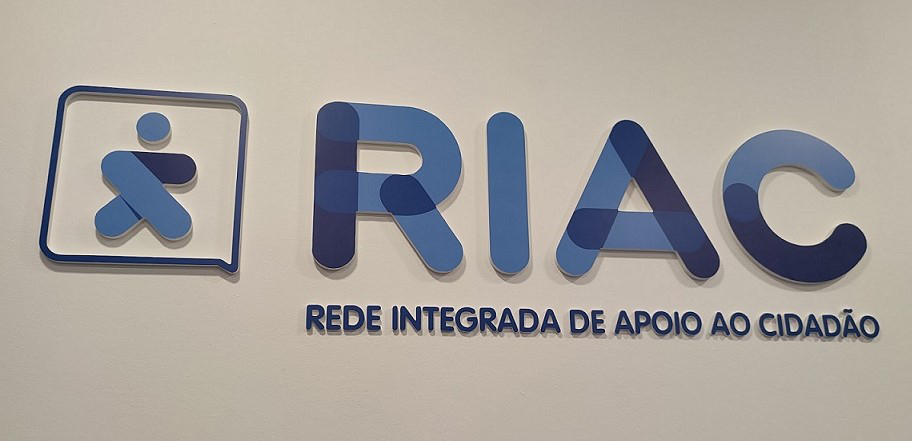

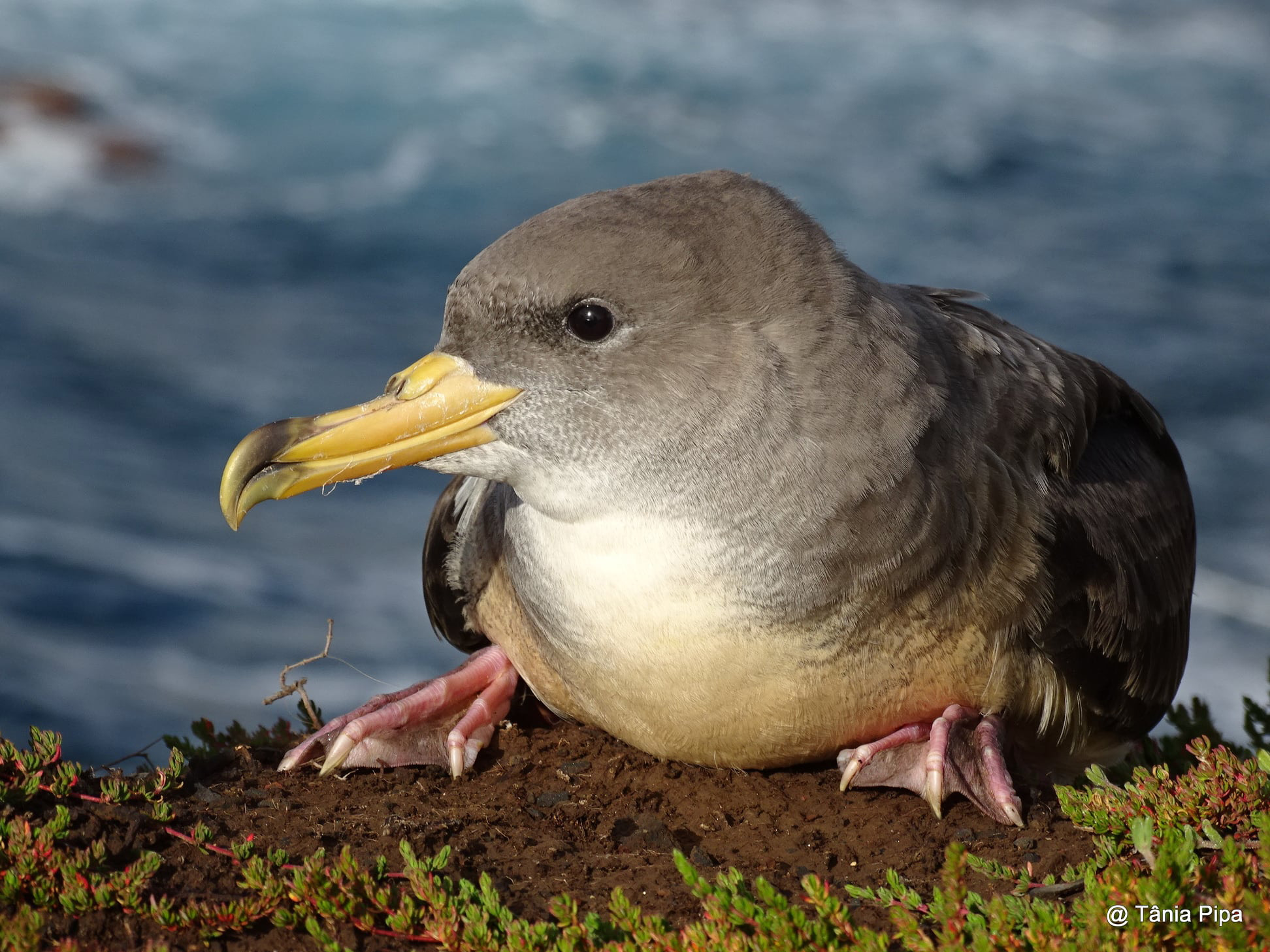



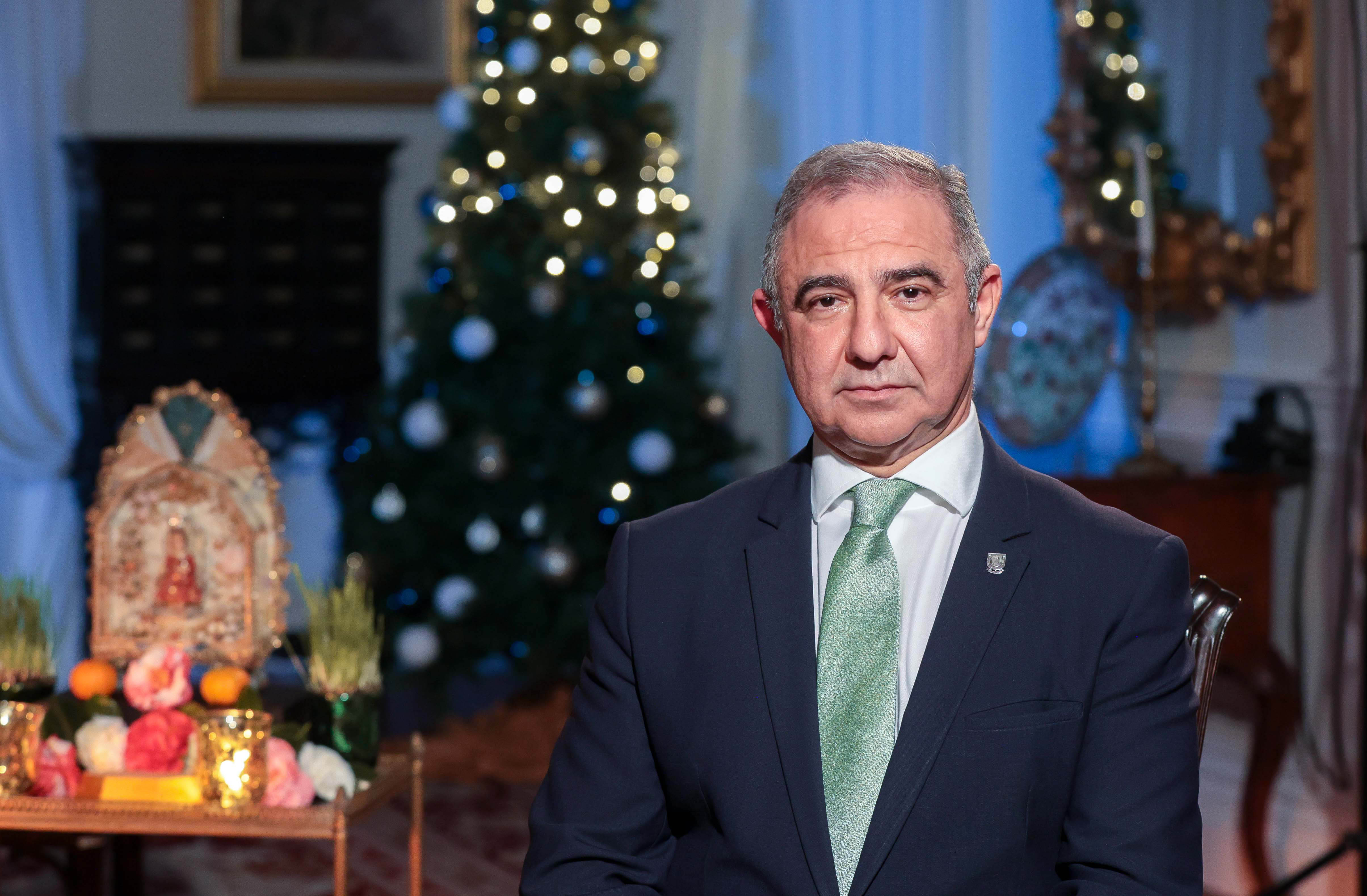

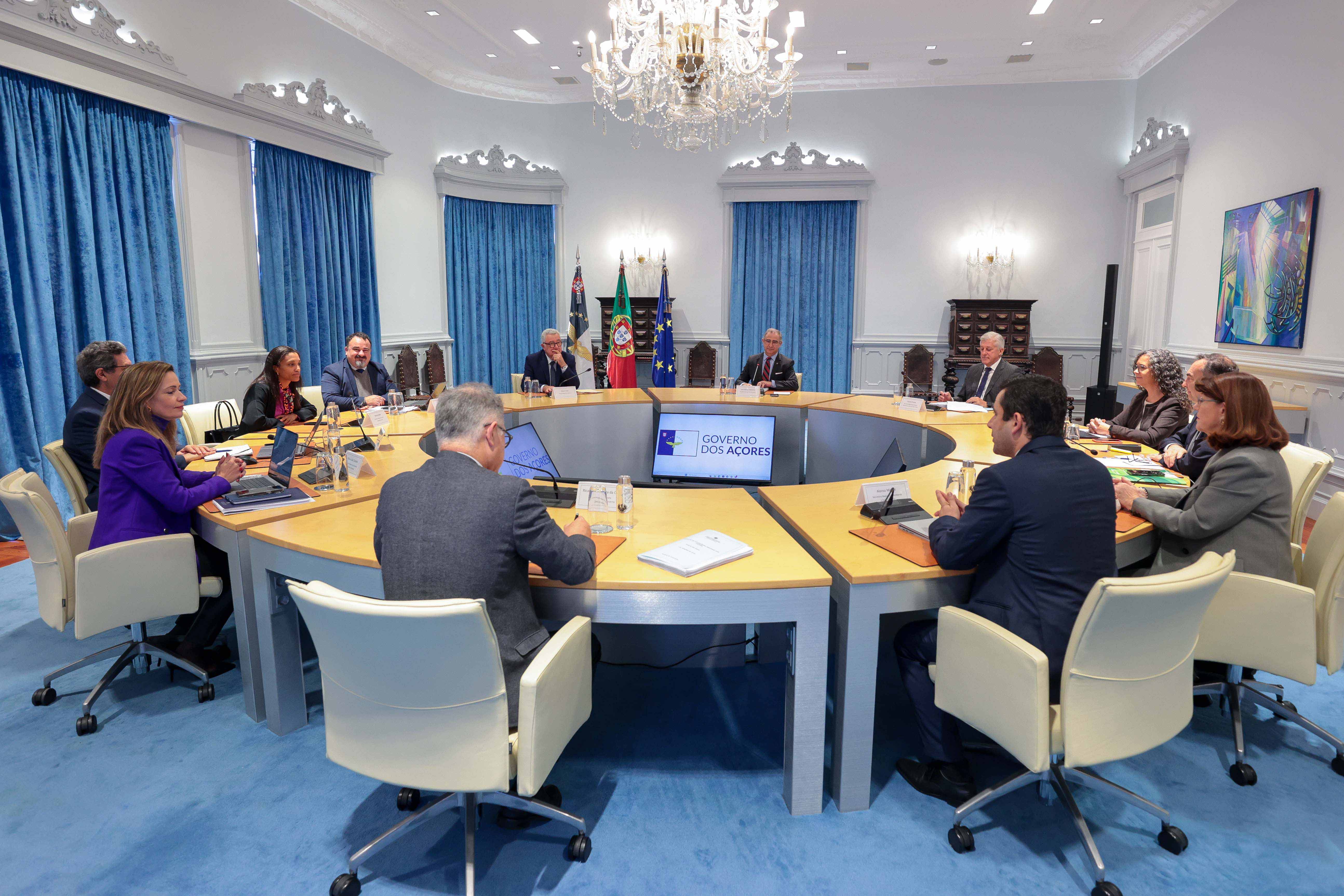

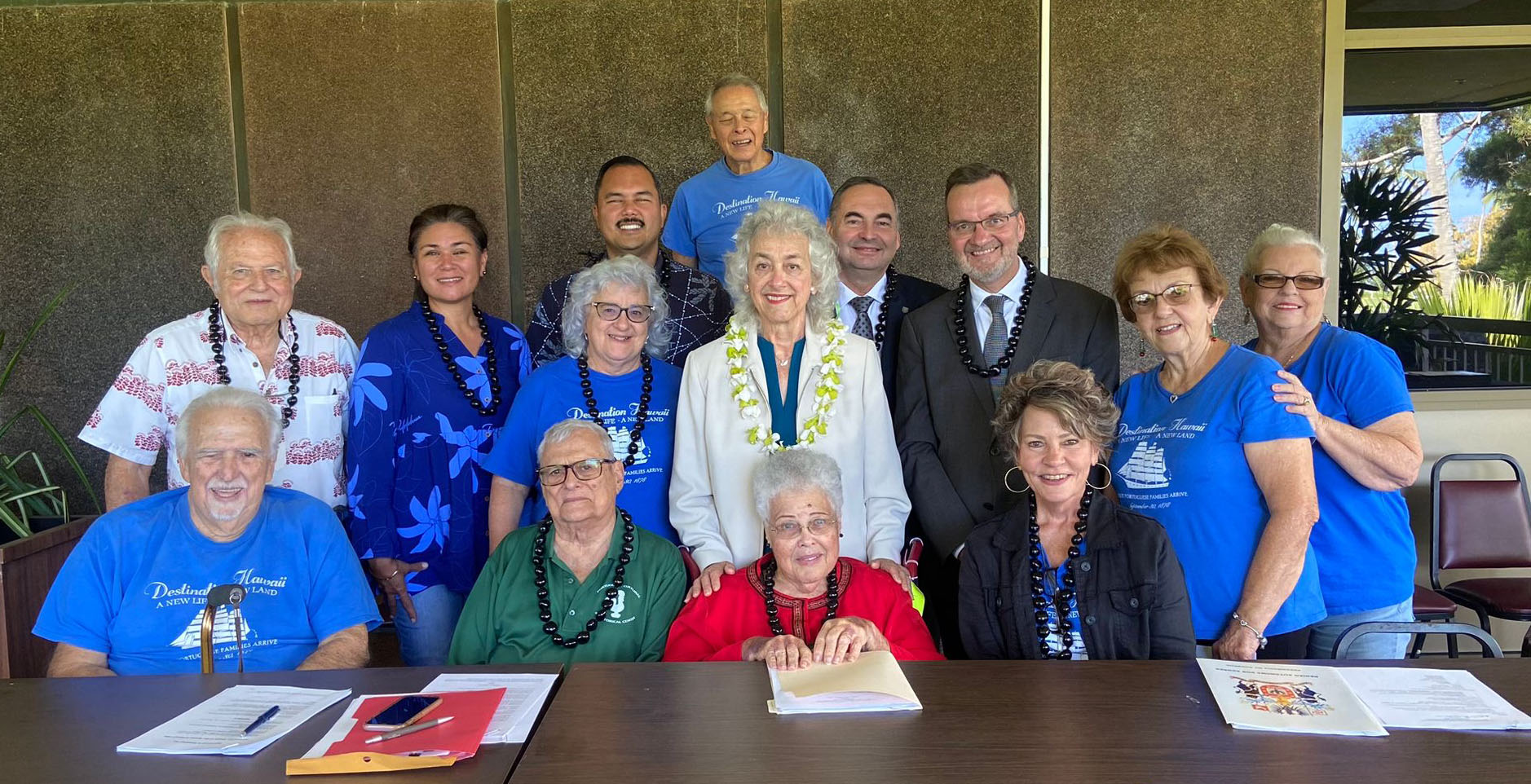

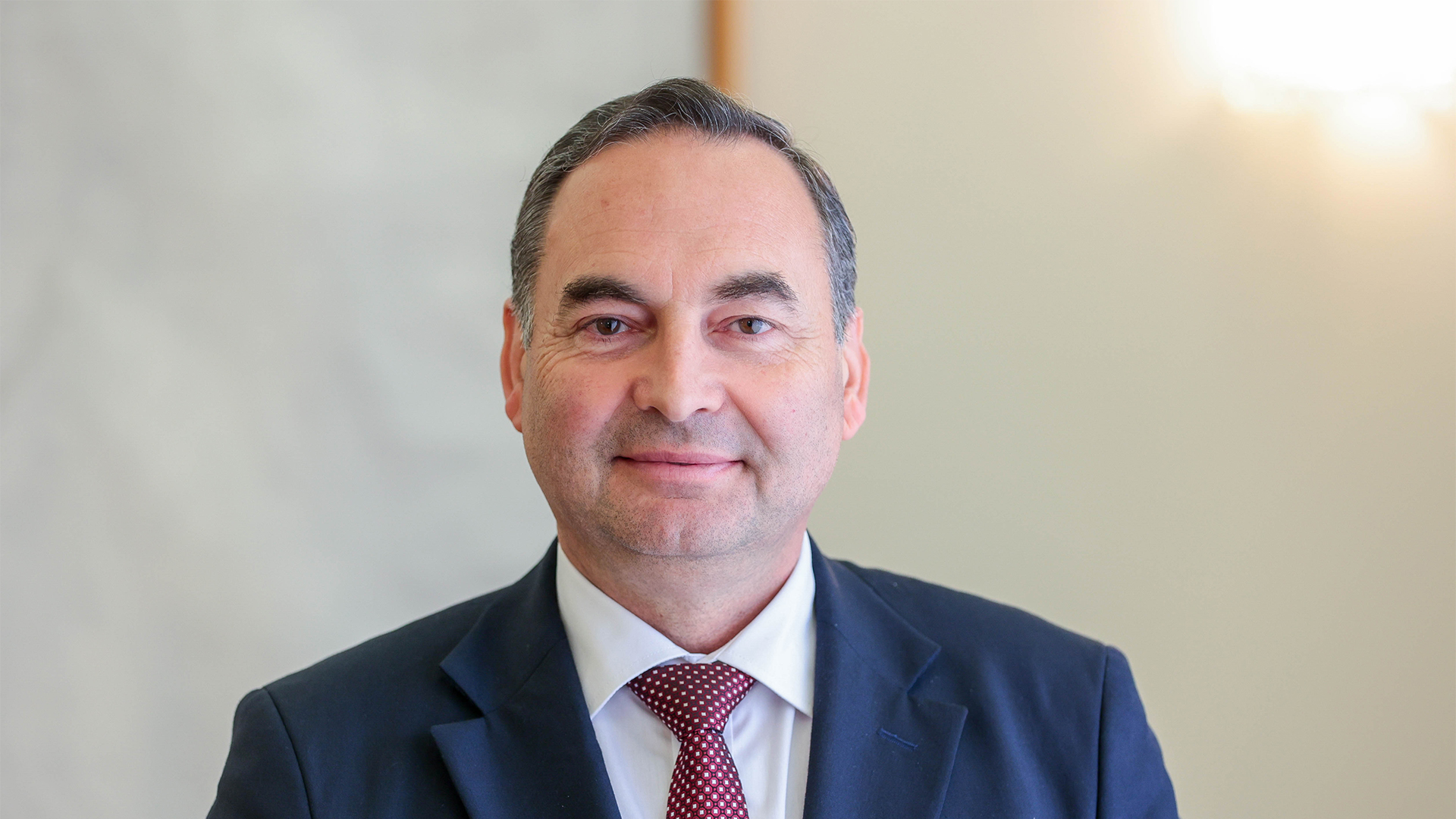

Nota de Imprensa
December 30, 2025
Candidaturas ao Estagiar L e T para residentes no continente e Madeira de 2 de janeiro a 31 de março
Os jovens residentes em Portugal continental e na Região Autónoma da Madeira interessados em fazer um estágio profissional nos Açores no âmbito dos programas ESTAGIAR L e ESTAGIAR T podem apresentar a sua candidatura entre os dias 2 de janeiro e 31 de março de 2026. Conforme Despacho da Secretária Regional da Juventude, Habitação e Emprego, Maria João Carreiro, publicado em Jornal Oficial e no qual estão identificadas as áreas prioritárias para estágio, os estágios iniciam-se nos 10 dias úteis posteriores à aprovação da candidatura e respetiva comunicação à Segurança Social até ao limite máximo de 30 de abril de 2026. As candidaturas dos jovens e das entidades promotoras do estágio devem ser submetidas em https://empregojovem.azores.gov.pt/, na qual são divulgadas as ofertas de estágio aprovadas. O ESTAGIAR L destina-se a recém-diplomados no ensino superior, detentores de nível VI, VII ou VIII do Quadro Nacional de Qualificações (QNQ), que nunca tenham exercido funções na respetiva área de formação ao abrigo de contrato de trabalho, após a conclusão da respetiva formação. Já o ESTAGIAR T tem como destinatários os recém-diplomados em cursos de qualificação profissional, nível IV ou V do QNQ, que nunca tenham exercido funções na respetiva área de formação ao abrigo de contrato de trabalho após a conclusão da respetiva formação. Os estágios têm a duração de 12 meses, incluindo um mês de descanso a gozar durante o 12.º mês de estágio, passível de prorrogação por mais três meses nas entidades de natureza privada nas ilhas de São Miguel, Terceira e Faial. Nas ilhas de Santa Maria, São Jorge, Pico, Graciosa, Flores e Corvo os estágios podem ser prorrogados mais seis meses nas entidades empregadoras de natureza privada e por mais três meses nas entidades da Administração Pública. Aos estagiários é atribuída uma bolsa mensal no valor da Retribuição Mínima Mensal Garantida na Região, majorada em 5% no caso do ESTAGIAR T e em 25% no caso do ESTAGIAR L, à qual acresce o subsídio de refeição no montante aplicável à Administração Pública.
December 30, 2025
Candidaturas ao Estagiar L e T para residentes no continente e Madeira de 2 de janeiro a 31 de março
Os jovens residentes em Portugal continental e na Região Autónoma da Madeira interessados em fazer um estágio profissional nos Açores no âmbito dos programas ESTAGIAR L e ESTAGIAR T podem apresentar a sua candidatura entre os dias 2 de janeiro e 31 de março de 2026. Conforme Despacho da Secretária Regional da Juventude, Habitação e Emprego, Maria João Carreiro, publicado em Jornal Oficial e no qual estão identificadas as áreas prioritárias para estágio, os estágios iniciam-se nos 10 dias úteis posteriores à aprovação da candidatura e respetiva comunicação à Segurança Social até ao limite máximo de 30 de abril de 2026. As candidaturas dos jovens e das entidades promotoras do estágio devem ser submetidas em https://empregojovem.azores.gov.pt/, na qual são divulgadas as ofertas de estágio aprovadas. O ESTAGIAR L destina-se a recém-diplomados no ensino superior, detentores de nível VI, VII ou VIII do Quadro Nacional de Qualificações (QNQ), que nunca tenham exercido funções na respetiva área de formação ao abrigo de contrato de trabalho, após a conclusão da respetiva formação. Já o ESTAGIAR T tem como destinatários os recém-diplomados em cursos de qualificação profissional, nível IV ou V do QNQ, que nunca tenham exercido funções na respetiva área de formação ao abrigo de contrato de trabalho após a conclusão da respetiva formação. Os estágios têm a duração de 12 meses, incluindo um mês de descanso a gozar durante o 12.º mês de estágio, passível de prorrogação por mais três meses nas entidades de natureza privada nas ilhas de São Miguel, Terceira e Faial. Nas ilhas de Santa Maria, São Jorge, Pico, Graciosa, Flores e Corvo os estágios podem ser prorrogados mais seis meses nas entidades empregadoras de natureza privada e por mais três meses nas entidades da Administração Pública. Aos estagiários é atribuída uma bolsa mensal no valor da Retribuição Mínima Mensal Garantida na Região, majorada em 5% no caso do ESTAGIAR T e em 25% no caso do ESTAGIAR L, à qual acresce o subsídio de refeição no montante aplicável à Administração Pública.

Nota de Imprensa
December 30, 2025
RIAC recebe certificação internacional de qualidade
A Rede Integrada de Apoio ao Cidadão (RIAC) recebeu a certificação ISO 9001:2015 para o seu Sistema de Gestão da Qualidade (SGQ). Este reconhecimento confirma que a RIAC opera sob processos rigorosamente definidos e orientados para a melhoria contínua, visando prestar um serviço mais simples, célere e próximo dos cidadãos e das empresas. A RIAC assegura a prestação centralizada de serviços públicos na Região, disponibilizando uma vasta rede de balcões físicos e canais digitais que facilitam o acesso a serviços de diversas áreas governamentais. Com uma missão focada na simplificação administrativa, a rede atua como um facilitador da relação entre os cidadãos e a Administração Regional, centralizando procedimentos e garantindo que os açorianos possam tratar dos seus assuntos de forma integrada. A certificação abrange o Centro de Contactos da Administração Pública Regional e o Gabinete de Conteúdos e Serviços, unidades que operam em conjunto para garantir um atendimento multicanal com qualidade e consistência. Enquanto o Centro de Contactos assegura a resposta ao cidadão através de canais telefónicos e digitais, o Gabinete de Conteúdos e Serviços coordena e acompanha os procedimentos, assegurando a uniformidade da informação, a qualidade dos processos e a articulação direta com as diversas entidades envolvidas. A implementação desta norma internacional representa um marco na modernização administrativa dos Açores. A ISO 9001:2015 impõe uma gestão baseada no risco e na eficácia organizacional, garantindo que a RIAC possui a resiliência necessária para responder a contextos de elevada exigência e fluxos de informação complexos. Este patamar de qualidade posiciona a rede açoriana em conformidade com as melhores práticas europeias de gestão pública, elevando o padrão de desempenho institucional. Como elo fundamental entre a administração e o território, a certificação da RIAC funciona como um motor de coesão, permitindo que o atendimento em qualquer ponto do arquipélago siga padrões de excelência idênticos. Este investimento na sistematização de processos permite eliminar barreiras burocráticas e otimizar a relação entre o setor público e o tecido empresarial, garantindo que a resposta administrativa é um facilitador da atividade económica e social na Região. Este passo na consolidação do Sistema de Gestão da Qualidade prepara, de igual modo, a RIAC para os desafios da transição digital e da inovação tecnológica. Ao otimizar a articulação interna e os fluxos de dados, a estrutura assegura uma base sólida para a integração de novos serviços digitais, garantindo que a modernização da rede é acompanhada por uma monitorização constante da satisfação do utilizador e dos tempos de resposta através deste ponto de contacto privilegiado com o cidadão. A certificação ISO 9001:2015 reforça, assim, o compromisso da RIAC com a qualidade do serviço prestado na Região Autónoma dos Açores, garantindo um atendimento cada vez mais eficiente, transparente e rigorosamente orientado para as necessidades dos cidadãos açorianos.
December 30, 2025
RIAC recebe certificação internacional de qualidade
A Rede Integrada de Apoio ao Cidadão (RIAC) recebeu a certificação ISO 9001:2015 para o seu Sistema de Gestão da Qualidade (SGQ). Este reconhecimento confirma que a RIAC opera sob processos rigorosamente definidos e orientados para a melhoria contínua, visando prestar um serviço mais simples, célere e próximo dos cidadãos e das empresas. A RIAC assegura a prestação centralizada de serviços públicos na Região, disponibilizando uma vasta rede de balcões físicos e canais digitais que facilitam o acesso a serviços de diversas áreas governamentais. Com uma missão focada na simplificação administrativa, a rede atua como um facilitador da relação entre os cidadãos e a Administração Regional, centralizando procedimentos e garantindo que os açorianos possam tratar dos seus assuntos de forma integrada. A certificação abrange o Centro de Contactos da Administração Pública Regional e o Gabinete de Conteúdos e Serviços, unidades que operam em conjunto para garantir um atendimento multicanal com qualidade e consistência. Enquanto o Centro de Contactos assegura a resposta ao cidadão através de canais telefónicos e digitais, o Gabinete de Conteúdos e Serviços coordena e acompanha os procedimentos, assegurando a uniformidade da informação, a qualidade dos processos e a articulação direta com as diversas entidades envolvidas. A implementação desta norma internacional representa um marco na modernização administrativa dos Açores. A ISO 9001:2015 impõe uma gestão baseada no risco e na eficácia organizacional, garantindo que a RIAC possui a resiliência necessária para responder a contextos de elevada exigência e fluxos de informação complexos. Este patamar de qualidade posiciona a rede açoriana em conformidade com as melhores práticas europeias de gestão pública, elevando o padrão de desempenho institucional. Como elo fundamental entre a administração e o território, a certificação da RIAC funciona como um motor de coesão, permitindo que o atendimento em qualquer ponto do arquipélago siga padrões de excelência idênticos. Este investimento na sistematização de processos permite eliminar barreiras burocráticas e otimizar a relação entre o setor público e o tecido empresarial, garantindo que a resposta administrativa é um facilitador da atividade económica e social na Região. Este passo na consolidação do Sistema de Gestão da Qualidade prepara, de igual modo, a RIAC para os desafios da transição digital e da inovação tecnológica. Ao otimizar a articulação interna e os fluxos de dados, a estrutura assegura uma base sólida para a integração de novos serviços digitais, garantindo que a modernização da rede é acompanhada por uma monitorização constante da satisfação do utilizador e dos tempos de resposta através deste ponto de contacto privilegiado com o cidadão. A certificação ISO 9001:2015 reforça, assim, o compromisso da RIAC com a qualidade do serviço prestado na Região Autónoma dos Açores, garantindo um atendimento cada vez mais eficiente, transparente e rigorosamente orientado para as necessidades dos cidadãos açorianos.

Nota de Imprensa
December 29, 2025
Campanha “SOS Cagarro” é esforço coletivo que garante proteção da biodiversidade nos Açores
O Secretário Regional do Mar e das Pescas, Mário Rui Pinho, destaca o impacto da Campanha “SOS Cagarro” como uma das principais medidas de mitigação da poluição luminosa da Região, sublinhando que a iniciativa, com cerca de 30 anos, consolida-se a cada ano como uma resposta operacional estruturada, um exemplo de envolvimento da sociedade civil. A Campanha “SOS Cagarro”, embora coordenada pela Direção Regional de Políticas Marítimas (DRPM), é um esforço coletivo e participado, que envolve entidades públicas, organizações não-governamentais, associações, voluntários e cidadãos, unidos no objetivo comum de proteger uma espécie emblemática dos Açores. De acordo com o balanço efetuado, a edição de 2025 resultou na recolha de 7.890 aves em toda a Região, tendo sido possível a libertação de 7.577 juvenis junto ao mar. Durante este período crítico, a DRPM assegurou o encaminhamento de aves feridas através de contratos celebrados com sete clínicas veterinárias distribuídas pelas várias ilhas, garantindo a capacidade de resposta técnica e o bem-estar animal. “Graças a este envolvimento, conseguimos garantir a cobertura territorial e a eficácia operacional indispensáveis para reduzir a mortalidade de juvenis durante o seu primeiro voo”, explica Mário Rui Pinho, reconhecendo o contributo fundamental de parceiros como a Associação para a Promoção e Proteção Ambiental dos Açores (APPAA), a Sociedade Portuguesa para o Estudo das Aves (SPEA), os Montanheiros, a Marine Waste, a Asas do Mar e o Observatório do Mar dos Açores, bem como das forças de segurança, bombeiros e autarquias. “Estamos a desenvolver ações destinadas a avaliar e mitigar os impactos da poluição luminosa através de uma abordagem integrada que concilia a conservação da biodiversidade com a eficiência energética e o ordenamento do território”, frisou o Secretário Regional, destacando o contributo do projeto LuMinAves, que resultou num manual de boas práticas de iluminação, e o atual envolvimento da Região no projeto Natura@Night, iniciativas que, em articulação com técnicos, Vigilantes da Natureza, parceiros científicos e associações do ambiente, ações contínuas de monitorização, proteção e gestão de colónias de nidificação de aves marinhas nos Açores, trabalho que se enquadra nos objetivos do LIFE IP Azores Natura, reforçando a coerência entre a proteção das aves marinhas e o planeamento estratégico regional. Mário Rui Pinho concluiu reforçando que a DRPM continuará a valorizar o contributo de todos os intervenientes: “este é um caminho de progresso que queremos continuar a trilhar, promovendo a análise dos resultados e mantendo-nos abertos a propostas de melhoria que contribuam para o reforço da eficácia da campanha e para a conservação sustentável do cagarro”.
December 29, 2025
Campanha “SOS Cagarro” é esforço coletivo que garante proteção da biodiversidade nos Açores
O Secretário Regional do Mar e das Pescas, Mário Rui Pinho, destaca o impacto da Campanha “SOS Cagarro” como uma das principais medidas de mitigação da poluição luminosa da Região, sublinhando que a iniciativa, com cerca de 30 anos, consolida-se a cada ano como uma resposta operacional estruturada, um exemplo de envolvimento da sociedade civil. A Campanha “SOS Cagarro”, embora coordenada pela Direção Regional de Políticas Marítimas (DRPM), é um esforço coletivo e participado, que envolve entidades públicas, organizações não-governamentais, associações, voluntários e cidadãos, unidos no objetivo comum de proteger uma espécie emblemática dos Açores. De acordo com o balanço efetuado, a edição de 2025 resultou na recolha de 7.890 aves em toda a Região, tendo sido possível a libertação de 7.577 juvenis junto ao mar. Durante este período crítico, a DRPM assegurou o encaminhamento de aves feridas através de contratos celebrados com sete clínicas veterinárias distribuídas pelas várias ilhas, garantindo a capacidade de resposta técnica e o bem-estar animal. “Graças a este envolvimento, conseguimos garantir a cobertura territorial e a eficácia operacional indispensáveis para reduzir a mortalidade de juvenis durante o seu primeiro voo”, explica Mário Rui Pinho, reconhecendo o contributo fundamental de parceiros como a Associação para a Promoção e Proteção Ambiental dos Açores (APPAA), a Sociedade Portuguesa para o Estudo das Aves (SPEA), os Montanheiros, a Marine Waste, a Asas do Mar e o Observatório do Mar dos Açores, bem como das forças de segurança, bombeiros e autarquias. “Estamos a desenvolver ações destinadas a avaliar e mitigar os impactos da poluição luminosa através de uma abordagem integrada que concilia a conservação da biodiversidade com a eficiência energética e o ordenamento do território”, frisou o Secretário Regional, destacando o contributo do projeto LuMinAves, que resultou num manual de boas práticas de iluminação, e o atual envolvimento da Região no projeto Natura@Night, iniciativas que, em articulação com técnicos, Vigilantes da Natureza, parceiros científicos e associações do ambiente, ações contínuas de monitorização, proteção e gestão de colónias de nidificação de aves marinhas nos Açores, trabalho que se enquadra nos objetivos do LIFE IP Azores Natura, reforçando a coerência entre a proteção das aves marinhas e o planeamento estratégico regional. Mário Rui Pinho concluiu reforçando que a DRPM continuará a valorizar o contributo de todos os intervenientes: “este é um caminho de progresso que queremos continuar a trilhar, promovendo a análise dos resultados e mantendo-nos abertos a propostas de melhoria que contribuam para o reforço da eficácia da campanha e para a conservação sustentável do cagarro”.


Nota de Imprensa
December 24, 2025
Nota à imprensa
O Governo dos Açores informa que, na sequência das diversas diligências encetadas pela Secretaria Regional do Turismo, Mobilidade e Infraestruturas, junto de várias entidades nacionais, nomeadamente a AMT e, em particular, junto dos responsáveis do Terminal Marítimo de Leixões, foi assegurada a descarga e a carga do navio da ETE Portugal que está na sexta-feira, dia 26 de dezembro, naquele porto. Apesar dos constrangimentos ao nível dos portos nacionais com a implementação do novo sistema aduaneiro português da Autoridade Tributária e Aduaneira, denominado SiMTeM, veiculados pela CIRCULAR Nº. 991-25, fica, assim, garantida a carga prioritária do navio com destino aos Açores. O Governo dos Açores congratula-se com a forma expedita como aquele porto atendeu às solicitações da Secretaria Regional e à sensibilidade perante as necessidades específicas da Região, atribuindo prioridade à carga para os Açores e garantindo a chegada atempada de mercadorias nesta época festiva do ano.
December 24, 2025
Nota à imprensa
O Governo dos Açores informa que, na sequência das diversas diligências encetadas pela Secretaria Regional do Turismo, Mobilidade e Infraestruturas, junto de várias entidades nacionais, nomeadamente a AMT e, em particular, junto dos responsáveis do Terminal Marítimo de Leixões, foi assegurada a descarga e a carga do navio da ETE Portugal que está na sexta-feira, dia 26 de dezembro, naquele porto. Apesar dos constrangimentos ao nível dos portos nacionais com a implementação do novo sistema aduaneiro português da Autoridade Tributária e Aduaneira, denominado SiMTeM, veiculados pela CIRCULAR Nº. 991-25, fica, assim, garantida a carga prioritária do navio com destino aos Açores. O Governo dos Açores congratula-se com a forma expedita como aquele porto atendeu às solicitações da Secretaria Regional e à sensibilidade perante as necessidades específicas da Região, atribuindo prioridade à carga para os Açores e garantindo a chegada atempada de mercadorias nesta época festiva do ano.

Intervenção
December 24, 2025
Mensagem de Natal do Presidente do Governo Regional dos Açores
Boa Noite! Açorianos, Vivemos mais uma quadra de Natal. Tempo de afetos, de reencontros, de memória e de esperança. Nesta quadra, que é de fé e de partilha, lembramos o essencial: a paz nos nossos corações, o cuidado com os outros e a confiança num futuro melhor para todos e cada um. Em cada lugar e lar do nosso arquipélago, o Natal tem o som das nossas tradições. As famílias reúnem-se à volta da mesa, inspiradas pelo espírito solidário que distingue o nosso povo. Mas…as guerras, as divisões e as injustiças mostram-nos diariamente a urgência de preservar o bem mais precioso que a humanidade pode possuir. A Paz. Aqui, nos Açores, convém lembrar o valor da convivência e do diálogo — entre gerações, entre ilhas, entre diferentes modos de pensar. Nos Açores, como no mundo, o que deve prevalecer na convivência entre todos, povos e países, é o humanismo. A cultura de tolerância começa no nosso Ser, nas nossas famílias, nas nossas escolas, nos nossos locais de trabalho. É uma construção exigente e frágil, feita de respeito e de responsabilidade. Que este Natal renove em cada açoriano o compromisso de ser um construtor da paz — na palavra, no gesto e nas escolhas que fazem todos os dias. Aos povos e territórios que vivem ódios e guerra desejamos o fim, rápido e duradouro, destas realidades, com vontades futuras renovadas e construtoras de uma Paz justa, de entendimento das diferenças e do respeito pela dignidade de cada um. O nosso futuro coletivo tem nos jovens a sua garantia. Se há motivo para esperança, ele encontra-se nos jovens. São eles que carregam consigo a energia criadora que transforma o presente e projeta o futuro. Cada jovem açoriano, que estuda, que trabalha, que sonha ou que regressa à sua terra, possui, consigo, a esperança de um amanhã mais justo e próspero. Os sucessos dos Açores são construídos em nome do futuro, isto é, em nome dos nossos jovens. Há tanto feito. Tanto para fazer! Estamos empenhados em continuar a apoiar a formação, a inovação e o empreendedorismo juvenil. Queremos que todo o jovem sinta que viver nos Açores é também estar próximo das oportunidades do mundo. As novas tecnologias, das economias verde e azul, abrem-nos portas inéditas — e é também nelas que os nossos jovens devem encontrar caminhos para crescer e contribuir. Aos jovens que enfrentam dúvidas ou desafios, quero deixar uma mensagem de confiança: o seu querer e o seu talento são essenciais. São poder. O futuro dos Açores será construído com as suas mãos. E o futuro dos Açores requer essa visão e compromisso. Exige que saibamos cuidar das pessoas... do que temos, dos nossos recursos naturais, a nossa identidade cultural, a nossa autonomia política, bem como saber projetar o que queremos ser. Os açorianos querem uma Região que continue a afirmar-se na Europa e no mundo, pela sua sustentabilidade e por uma coesão social fortalecida. Uma economia que se modernize, com um progresso tecnológico que caminhe ao lado da preservação do nosso mar, do nosso solo e do nosso modo de ser açoriano. Essa é a nossa visão: servir o povo açoriano com sentido de futuro. Em mais um Natal de esperança deixo uma palavra de gratidão a todos os que trabalham pelos Açores. Para todos, todos, todos, como nos inspirou Papa Francisco. Expresso com o apreço de sempre e do fundo do coração uma saudação aos açorianos que estão longe, espalhados pelo mundo, mas que levam sempre no coração as suas origens açorianas e a saudade das suas ilhas. A todos envio uma saudação fraterna e o desejo de que sintam, apesar da distância, o calor da nossa terra e da nossa amizade. Que este Natal seja para todos um tempo de reconciliação e de paz interior. Que saibamos olhar uns pelos outros e manter viva a esperança. Desejo a cada um, um Santo Natal e um Novo Ano cheio de saúde, prosperidade e serenidade. Boas Festas para todos.
December 24, 2025
Mensagem de Natal do Presidente do Governo Regional dos Açores
Boa Noite! Açorianos, Vivemos mais uma quadra de Natal. Tempo de afetos, de reencontros, de memória e de esperança. Nesta quadra, que é de fé e de partilha, lembramos o essencial: a paz nos nossos corações, o cuidado com os outros e a confiança num futuro melhor para todos e cada um. Em cada lugar e lar do nosso arquipélago, o Natal tem o som das nossas tradições. As famílias reúnem-se à volta da mesa, inspiradas pelo espírito solidário que distingue o nosso povo. Mas…as guerras, as divisões e as injustiças mostram-nos diariamente a urgência de preservar o bem mais precioso que a humanidade pode possuir. A Paz. Aqui, nos Açores, convém lembrar o valor da convivência e do diálogo — entre gerações, entre ilhas, entre diferentes modos de pensar. Nos Açores, como no mundo, o que deve prevalecer na convivência entre todos, povos e países, é o humanismo. A cultura de tolerância começa no nosso Ser, nas nossas famílias, nas nossas escolas, nos nossos locais de trabalho. É uma construção exigente e frágil, feita de respeito e de responsabilidade. Que este Natal renove em cada açoriano o compromisso de ser um construtor da paz — na palavra, no gesto e nas escolhas que fazem todos os dias. Aos povos e territórios que vivem ódios e guerra desejamos o fim, rápido e duradouro, destas realidades, com vontades futuras renovadas e construtoras de uma Paz justa, de entendimento das diferenças e do respeito pela dignidade de cada um. O nosso futuro coletivo tem nos jovens a sua garantia. Se há motivo para esperança, ele encontra-se nos jovens. São eles que carregam consigo a energia criadora que transforma o presente e projeta o futuro. Cada jovem açoriano, que estuda, que trabalha, que sonha ou que regressa à sua terra, possui, consigo, a esperança de um amanhã mais justo e próspero. Os sucessos dos Açores são construídos em nome do futuro, isto é, em nome dos nossos jovens. Há tanto feito. Tanto para fazer! Estamos empenhados em continuar a apoiar a formação, a inovação e o empreendedorismo juvenil. Queremos que todo o jovem sinta que viver nos Açores é também estar próximo das oportunidades do mundo. As novas tecnologias, das economias verde e azul, abrem-nos portas inéditas — e é também nelas que os nossos jovens devem encontrar caminhos para crescer e contribuir. Aos jovens que enfrentam dúvidas ou desafios, quero deixar uma mensagem de confiança: o seu querer e o seu talento são essenciais. São poder. O futuro dos Açores será construído com as suas mãos. E o futuro dos Açores requer essa visão e compromisso. Exige que saibamos cuidar das pessoas... do que temos, dos nossos recursos naturais, a nossa identidade cultural, a nossa autonomia política, bem como saber projetar o que queremos ser. Os açorianos querem uma Região que continue a afirmar-se na Europa e no mundo, pela sua sustentabilidade e por uma coesão social fortalecida. Uma economia que se modernize, com um progresso tecnológico que caminhe ao lado da preservação do nosso mar, do nosso solo e do nosso modo de ser açoriano. Essa é a nossa visão: servir o povo açoriano com sentido de futuro. Em mais um Natal de esperança deixo uma palavra de gratidão a todos os que trabalham pelos Açores. Para todos, todos, todos, como nos inspirou Papa Francisco. Expresso com o apreço de sempre e do fundo do coração uma saudação aos açorianos que estão longe, espalhados pelo mundo, mas que levam sempre no coração as suas origens açorianas e a saudade das suas ilhas. A todos envio uma saudação fraterna e o desejo de que sintam, apesar da distância, o calor da nossa terra e da nossa amizade. Que este Natal seja para todos um tempo de reconciliação e de paz interior. Que saibamos olhar uns pelos outros e manter viva a esperança. Desejo a cada um, um Santo Natal e um Novo Ano cheio de saúde, prosperidade e serenidade. Boas Festas para todos.

Comunicado
December 23, 2025
Comunicado do Conselho do Governo
O Conselho do Governo, reunido no dia 23 de dezembro de 2025, por via digital, decidiu adotar as seguintes medidas: 1. Aprovar duas Resoluções, na área da Saúde, que autorizam a realização da despesa e contratação da “Aquisição, instalação e manutenção de um robô cirúrgico” e a “Aquisição, instalação e manutenção de dois robôs de ortopedia”. Há necessidade de dotar o Serviço Regional de Saúde, através das unidades de saúde, de uma rede de equipamentos modernos, que acompanhem a evolução científica e tecnológica, em benefício dos seus utentes. Assim, o Governo dos Açores decidiu proceder à aquisição de um robô cirúrgico, para cedência ao Hospital do Divino Espírito Santo, num significativo contributo para a qualidade e performance clínicas em diversas especialidades, permitindo cirurgias menos invasivas e, consequentemente, menos traumáticas, assim como uma melhor recuperação pós-cirúrgica. O referido investimento tem enquadramento no âmbito do Plano de Recuperação e Resiliência e tem como preço base máximo 2.530.000,00 €. O Governo dos Açores decidiu, ainda, proceder à aquisição de dois robôs de ortopedia, para cedência de um ao Hospital do Divino Espírito Santo e outro ao Hospital de Santo Espírito da Ilha Terceira. Este investimento tem enquadramento no âmbito do Plano de Recuperação e Resiliência e serão instalados com o preço base máximo de 2.600.000,00 €, sendo de 1.300.000,00 €, cada lote, no máximo. 2. Aprovar a Resolução que mandata o representante da Região Autónoma dos Açores na Assembleia Geral da SATA Holding, S.A. para aprovar a seguinte composição do conselho de administração da SATA Holding, S.A.: a) Tiago Alexandre Carvalho dos Santos, como Presidente; b) Sandro Manuel Botelho Raposo, como Administrador; c) Bernardo António Oliveira, como Administrador; d) João Crispim Carvalho Lourenço Borges da Ponte, como Administrador Não Executivo; A presente Resolução do Governo dos Açores mandata, ainda, o representante da SATA Holding, S.A. nas Assembleias Gerais da SATA Internacional – Azores Airlines, S.A., da SATA Air Açores, S.A. e da SATA Gestão de Aeródromos, S.A. para aprovar a seguinte composição dos conselhos de administração de cada uma das empresas referidas: a) Tiago Alexandre Carvalho dos Santos, como Presidente; b) Sandro Manuel Botelho Raposo, como Administrador; c) Bernardo António Oliveira, como Administrador;
December 23, 2025
Comunicado do Conselho do Governo
O Conselho do Governo, reunido no dia 23 de dezembro de 2025, por via digital, decidiu adotar as seguintes medidas: 1. Aprovar duas Resoluções, na área da Saúde, que autorizam a realização da despesa e contratação da “Aquisição, instalação e manutenção de um robô cirúrgico” e a “Aquisição, instalação e manutenção de dois robôs de ortopedia”. Há necessidade de dotar o Serviço Regional de Saúde, através das unidades de saúde, de uma rede de equipamentos modernos, que acompanhem a evolução científica e tecnológica, em benefício dos seus utentes. Assim, o Governo dos Açores decidiu proceder à aquisição de um robô cirúrgico, para cedência ao Hospital do Divino Espírito Santo, num significativo contributo para a qualidade e performance clínicas em diversas especialidades, permitindo cirurgias menos invasivas e, consequentemente, menos traumáticas, assim como uma melhor recuperação pós-cirúrgica. O referido investimento tem enquadramento no âmbito do Plano de Recuperação e Resiliência e tem como preço base máximo 2.530.000,00 €. O Governo dos Açores decidiu, ainda, proceder à aquisição de dois robôs de ortopedia, para cedência de um ao Hospital do Divino Espírito Santo e outro ao Hospital de Santo Espírito da Ilha Terceira. Este investimento tem enquadramento no âmbito do Plano de Recuperação e Resiliência e serão instalados com o preço base máximo de 2.600.000,00 €, sendo de 1.300.000,00 €, cada lote, no máximo. 2. Aprovar a Resolução que mandata o representante da Região Autónoma dos Açores na Assembleia Geral da SATA Holding, S.A. para aprovar a seguinte composição do conselho de administração da SATA Holding, S.A.: a) Tiago Alexandre Carvalho dos Santos, como Presidente; b) Sandro Manuel Botelho Raposo, como Administrador; c) Bernardo António Oliveira, como Administrador; d) João Crispim Carvalho Lourenço Borges da Ponte, como Administrador Não Executivo; A presente Resolução do Governo dos Açores mandata, ainda, o representante da SATA Holding, S.A. nas Assembleias Gerais da SATA Internacional – Azores Airlines, S.A., da SATA Air Açores, S.A. e da SATA Gestão de Aeródromos, S.A. para aprovar a seguinte composição dos conselhos de administração de cada uma das empresas referidas: a) Tiago Alexandre Carvalho dos Santos, como Presidente; b) Sandro Manuel Botelho Raposo, como Administrador; c) Bernardo António Oliveira, como Administrador;

Nota de Imprensa
December 23, 2025
Governo dos Açores formaliza criação da Casa dos Açores do Havai
O Governo dos Açores formalizou a criação da Casa dos Açores do Havai, reforçando a rede global das Casas dos Açores e afirmando, com significado histórico e estratégico, a presença de uma comunidade açoriana que liga o Atlântico ao Pacífico. "Este ato ultrapassa a dimensão administrativa: traduz uma visão de futuro ancorada na identidade, na memória e na capacidade dos Açores se projetarem como um arquipélago com expressão global", sustenta Paulo Estêvão, Secretário Regional com a tutela das Comunidades. "Para muitos havaianos de origem açoriana e não só, os Açores são o Havai do Atlântico: ilhas de génese vulcânica, erguidas pela energia da terra e do mar, de beleza natural impressionante. São territórios moldados pela convivência com a natureza, pela cultura da resiliência, pela centralidade do oceano e por comunidades que aprenderam, ao longo dos séculos, a transformar isolamento em abertura ao mundo. Esta afinidade profunda entre dois arquipélagos cria hoje uma oportunidade singular de cooperação baseada não apenas na história comum, mas numa visão partilhada de desenvolvimento sustentável, conhecimento e identidade", sublinha Paulo Estêvão. A Casa dos Açores do Havai foi oficialmente reconhecida através da assinatura de um protocolo de cooperação a 19 de dezembro, em Hilo, na ilha da Big Island, tornando-se a vigésima Casa dos Açores no mundo e a terceira nos Estados Unidos da América, depois da Califórnia (1977) e da Nova Inglaterra (1985). O protocolo foi assinado pelo Secretário Regional da Agricultura e Alimentação, António Ventura, em representação do Presidente do Governo dos Açores, José Manuel Bolieiro, contando com a presença do Diretor Regional das Comunidades, José Andrade. A Casa dos Açores do Havai nasce da iniciativa de um grupo de açordescendentes das ilhas de Hawai’i, Maui, O’ahu e Kaua’i, presidido pela professora universitária Marlene Andrade Hapai, e resulta das diligências desenvolvidas pela Secretaria Regional dos Assuntos Parlamentares e Comunidades ao longo do último ano. Com esta formalização, concretiza-se uma aspiração antiga, reconhecida desde a década de 1980, dando finalmente expressão institucional, no Pacífico, a uma das mais marcantes diásporas açorianas. Entre 1878 e 1913, emigraram para o Havai mais de 14.000 açorianos, sobretudo para trabalharem nas plantações de cana-do-açúcar. Levaram consigo a língua, a fé, os valores comunitários e uma forma insular de estar no mundo. Levaram também práticas culturais que sobreviveram ao tempo e à distância, como as Festas do Espírito Santo, expressão maior da solidariedade, da partilha e da organização comunitária açoriana, bem como tradições ligadas à música, à gastronomia e aos valores de superação e capacidade de integração que caracterizam as comunidades açorianas. Hoje, o arquipélago do Pacífico, situado a cerca de 12.000 quilómetros dos Açores, conta com dezenas de milhares de açordescendentes, muitos dos quais partilham também ascendência madeirense, mantendo uma ligação afetiva profunda às ilhas de origem. A persistência destas tradições demonstra que a diáspora açoriana não se limitou a integrar-se: soube enraizar-se sem se diluir, preservando elementos essenciais da sua cultura ao longo de várias gerações. A criação da Casa dos Açores do Havai afirma uma visão mais ampla: a de um mundo açoriano que se estende muito para além do território insular, com comunidades profundamente enraizadas na América do Norte e do Sul, nomeadamente nos Estados Unidos da América, Canadá, Bermuda, Brasil e Uruguai, formando uma geografia humana contínua que bordeja o Atlântico e o Pacífico. Este mundo açoriano não é apenas herança do passado; é uma rede viva de pessoas, instituições e práticas culturais que constituem um ativo estratégico para o futuro. Neste contexto, a cooperação entre os Açores e o Havai pode assumir uma dimensão verdadeiramente transformadora, assente na partilha de conhecimento entre territórios insulares vulcânicos, na valorização do oceano como espaço de ciência, sustentabilidade e economia, na promoção de modelos responsáveis de turismo de identidade, no intercâmbio educativo e juvenil, na diplomacia cultural e na afirmação internacional de comunidades que fazem da insularidade uma vantagem e da cultura um fator de coesão e projeção. A Casa dos Açores do Havai assume, assim, uma vocação que vai além da preservação da memória: será um espaço de encontro entre passado, presente e futuro, capaz de transformar herança cultural em cooperação concreta e visão estratégica. Essa ambição materializa-se na decisão da comunidade açordescendente de construir, a expensas próprias, o Centro Cultural Saudades, com inauguração prevista para 2026, onde ficará instalada a sede da Casa dos Açores. Implantado num terreno com cerca de 4.000 metros quadrados, este projeto representa um investimento global estimado em dois milhões de dólares e constitui um sinal inequívoco do dinamismo, do compromisso e da vitalidade desta comunidade. Na sequência da criação da Casa dos Açores do Havai, vários grupos de havaianos já estão a programar viagens aos Açores, reforçando laços afetivos, promovendo o turismo de raízes e abrindo novas oportunidades de cooperação cultural, científica e económica entre instituições e comunidades. Nos últimos quatro anos, o Governo dos Açores apoiou a criação de quatro novas Casas dos Açores em Portugal, no Brasil e nos Estados Unidos da América — Apiacá (2022), Coimbra (2024), Belo Horizonte (2025) e agora Hilo (2025) — consolidando uma rede que dá corpo a uma ideia essencial: ser açoriano é pertencer a um arquipélago e a uma comunidade global. As Casas dos Açores são associações representativas das comunidades emigrantes e dos seus descendentes, dedicadas à preservação da identidade açoriana e à promoção de relações culturais, sociais e económicas com a Região Autónoma dos Açores, através de protocolos de cooperação. Com a Casa dos Açores do Havai, os Açores reafirmam-se como um arquipélago com história, com presente e com horizonte: um povo de ilhas que atravessou oceanos levando consigo as suas tradições e que, geração após geração, soube mantê-las vivas.
December 23, 2025
Governo dos Açores formaliza criação da Casa dos Açores do Havai
O Governo dos Açores formalizou a criação da Casa dos Açores do Havai, reforçando a rede global das Casas dos Açores e afirmando, com significado histórico e estratégico, a presença de uma comunidade açoriana que liga o Atlântico ao Pacífico. "Este ato ultrapassa a dimensão administrativa: traduz uma visão de futuro ancorada na identidade, na memória e na capacidade dos Açores se projetarem como um arquipélago com expressão global", sustenta Paulo Estêvão, Secretário Regional com a tutela das Comunidades. "Para muitos havaianos de origem açoriana e não só, os Açores são o Havai do Atlântico: ilhas de génese vulcânica, erguidas pela energia da terra e do mar, de beleza natural impressionante. São territórios moldados pela convivência com a natureza, pela cultura da resiliência, pela centralidade do oceano e por comunidades que aprenderam, ao longo dos séculos, a transformar isolamento em abertura ao mundo. Esta afinidade profunda entre dois arquipélagos cria hoje uma oportunidade singular de cooperação baseada não apenas na história comum, mas numa visão partilhada de desenvolvimento sustentável, conhecimento e identidade", sublinha Paulo Estêvão. A Casa dos Açores do Havai foi oficialmente reconhecida através da assinatura de um protocolo de cooperação a 19 de dezembro, em Hilo, na ilha da Big Island, tornando-se a vigésima Casa dos Açores no mundo e a terceira nos Estados Unidos da América, depois da Califórnia (1977) e da Nova Inglaterra (1985). O protocolo foi assinado pelo Secretário Regional da Agricultura e Alimentação, António Ventura, em representação do Presidente do Governo dos Açores, José Manuel Bolieiro, contando com a presença do Diretor Regional das Comunidades, José Andrade. A Casa dos Açores do Havai nasce da iniciativa de um grupo de açordescendentes das ilhas de Hawai’i, Maui, O’ahu e Kaua’i, presidido pela professora universitária Marlene Andrade Hapai, e resulta das diligências desenvolvidas pela Secretaria Regional dos Assuntos Parlamentares e Comunidades ao longo do último ano. Com esta formalização, concretiza-se uma aspiração antiga, reconhecida desde a década de 1980, dando finalmente expressão institucional, no Pacífico, a uma das mais marcantes diásporas açorianas. Entre 1878 e 1913, emigraram para o Havai mais de 14.000 açorianos, sobretudo para trabalharem nas plantações de cana-do-açúcar. Levaram consigo a língua, a fé, os valores comunitários e uma forma insular de estar no mundo. Levaram também práticas culturais que sobreviveram ao tempo e à distância, como as Festas do Espírito Santo, expressão maior da solidariedade, da partilha e da organização comunitária açoriana, bem como tradições ligadas à música, à gastronomia e aos valores de superação e capacidade de integração que caracterizam as comunidades açorianas. Hoje, o arquipélago do Pacífico, situado a cerca de 12.000 quilómetros dos Açores, conta com dezenas de milhares de açordescendentes, muitos dos quais partilham também ascendência madeirense, mantendo uma ligação afetiva profunda às ilhas de origem. A persistência destas tradições demonstra que a diáspora açoriana não se limitou a integrar-se: soube enraizar-se sem se diluir, preservando elementos essenciais da sua cultura ao longo de várias gerações. A criação da Casa dos Açores do Havai afirma uma visão mais ampla: a de um mundo açoriano que se estende muito para além do território insular, com comunidades profundamente enraizadas na América do Norte e do Sul, nomeadamente nos Estados Unidos da América, Canadá, Bermuda, Brasil e Uruguai, formando uma geografia humana contínua que bordeja o Atlântico e o Pacífico. Este mundo açoriano não é apenas herança do passado; é uma rede viva de pessoas, instituições e práticas culturais que constituem um ativo estratégico para o futuro. Neste contexto, a cooperação entre os Açores e o Havai pode assumir uma dimensão verdadeiramente transformadora, assente na partilha de conhecimento entre territórios insulares vulcânicos, na valorização do oceano como espaço de ciência, sustentabilidade e economia, na promoção de modelos responsáveis de turismo de identidade, no intercâmbio educativo e juvenil, na diplomacia cultural e na afirmação internacional de comunidades que fazem da insularidade uma vantagem e da cultura um fator de coesão e projeção. A Casa dos Açores do Havai assume, assim, uma vocação que vai além da preservação da memória: será um espaço de encontro entre passado, presente e futuro, capaz de transformar herança cultural em cooperação concreta e visão estratégica. Essa ambição materializa-se na decisão da comunidade açordescendente de construir, a expensas próprias, o Centro Cultural Saudades, com inauguração prevista para 2026, onde ficará instalada a sede da Casa dos Açores. Implantado num terreno com cerca de 4.000 metros quadrados, este projeto representa um investimento global estimado em dois milhões de dólares e constitui um sinal inequívoco do dinamismo, do compromisso e da vitalidade desta comunidade. Na sequência da criação da Casa dos Açores do Havai, vários grupos de havaianos já estão a programar viagens aos Açores, reforçando laços afetivos, promovendo o turismo de raízes e abrindo novas oportunidades de cooperação cultural, científica e económica entre instituições e comunidades. Nos últimos quatro anos, o Governo dos Açores apoiou a criação de quatro novas Casas dos Açores em Portugal, no Brasil e nos Estados Unidos da América — Apiacá (2022), Coimbra (2024), Belo Horizonte (2025) e agora Hilo (2025) — consolidando uma rede que dá corpo a uma ideia essencial: ser açoriano é pertencer a um arquipélago e a uma comunidade global. As Casas dos Açores são associações representativas das comunidades emigrantes e dos seus descendentes, dedicadas à preservação da identidade açoriana e à promoção de relações culturais, sociais e económicas com a Região Autónoma dos Açores, através de protocolos de cooperação. Com a Casa dos Açores do Havai, os Açores reafirmam-se como um arquipélago com história, com presente e com horizonte: um povo de ilhas que atravessou oceanos levando consigo as suas tradições e que, geração após geração, soube mantê-las vivas.

Nota de Imprensa
December 23, 2025
PRR impulsiona a Agricultura nos Açores, afirma António Ventura
O Secretário Regional da Agricultura e Alimentação, António Ventura, sublinha o impacto do Plano de Recuperação e Resiliência (PRR) na modernização e capacitação do setor agrícola açoriano, através de iniciativas como o projeto “Do Campo à Mesa: Cultivando o Futuro!” e o Fórum AçoresBIO, que promoveu a agricultura biológica com 18 ações de informação e 18 sessões de trabalho, envolvendo 1.664 participantes. Também financiado pelo PRR, o projeto “Do Campo à Mesa:Cultivando o Futuro!”, proporcionou 103 workshops em todas as ilhas, envolvendo mais de 2.400 alunos e promovendo hábitos alimentares saudáveis, produção sustentável e redução do desperdício. “A iniciativa alcançou o nível máximo do Selo 'Evento Circular'”, destaca. “O PRR tornou-se um dos motores de modernização e reforço estrutural da agricultura açoriana. Com um investimento de 34 milhões de euros, o programa permitiu acelerar obras, criar novos instrumentos de apoio ao setor e melhorar a capacidade de resposta dos produtores”, explica o Secretário Regional. Para o governante, “com estes investimentos, o PRR afirma-se como um pilar estratégico na promoção da sustentabilidade, na valorização da produção regional e na preparação dos agricultores açorianos para os desafios futuros”. E prossegue: “no conjunto, o PRR tem funcionado como uma alavanca para tornar a agricultura açoriana mais moderna, sustentável e preparada para os desafios económicos e climáticos dos próximos anos”. Para António Ventura, graças ao PRR, conseguiu-se acelerar investimentos que estavam há anos identificados como prioritários e dotar o setor de melhores condições para produzir com mais eficiência, mais conhecimento e maior sustentabilidade. “Hoje, temos uma agricultura mais preparada para os desafios do futuro, reforçámos a nossa capacidade de análise de solos, melhorámos a informação meteorológica, criámos o Observatório Agroalimentar dos Açores e avançámos com obras estruturantes como o matadouro de São Jorge”, realça. "Estes investimentos não são apenas infraestruturas; são instrumentos que dão mais transparência ao mercado, valorizam o trabalho dos nossos agricultores e permitem construir políticas públicas mais justas e eficazes”, vincou ainda. “O PRR está a deixar uma marca duradoura na agricultura açoriana. Estamos a modernizar o setor, a capacitar os nossos produtores e a garantir que a agricultura dos Açores continua a ser um pilar essencial da nossa economia e da nossa identidade. Este é um caminho de progresso que queremos continuar a trilhar, sempre com os agricultores ao nosso lado”, conclui António Ventura.
December 23, 2025
PRR impulsiona a Agricultura nos Açores, afirma António Ventura
O Secretário Regional da Agricultura e Alimentação, António Ventura, sublinha o impacto do Plano de Recuperação e Resiliência (PRR) na modernização e capacitação do setor agrícola açoriano, através de iniciativas como o projeto “Do Campo à Mesa: Cultivando o Futuro!” e o Fórum AçoresBIO, que promoveu a agricultura biológica com 18 ações de informação e 18 sessões de trabalho, envolvendo 1.664 participantes. Também financiado pelo PRR, o projeto “Do Campo à Mesa:Cultivando o Futuro!”, proporcionou 103 workshops em todas as ilhas, envolvendo mais de 2.400 alunos e promovendo hábitos alimentares saudáveis, produção sustentável e redução do desperdício. “A iniciativa alcançou o nível máximo do Selo 'Evento Circular'”, destaca. “O PRR tornou-se um dos motores de modernização e reforço estrutural da agricultura açoriana. Com um investimento de 34 milhões de euros, o programa permitiu acelerar obras, criar novos instrumentos de apoio ao setor e melhorar a capacidade de resposta dos produtores”, explica o Secretário Regional. Para o governante, “com estes investimentos, o PRR afirma-se como um pilar estratégico na promoção da sustentabilidade, na valorização da produção regional e na preparação dos agricultores açorianos para os desafios futuros”. E prossegue: “no conjunto, o PRR tem funcionado como uma alavanca para tornar a agricultura açoriana mais moderna, sustentável e preparada para os desafios económicos e climáticos dos próximos anos”. Para António Ventura, graças ao PRR, conseguiu-se acelerar investimentos que estavam há anos identificados como prioritários e dotar o setor de melhores condições para produzir com mais eficiência, mais conhecimento e maior sustentabilidade. “Hoje, temos uma agricultura mais preparada para os desafios do futuro, reforçámos a nossa capacidade de análise de solos, melhorámos a informação meteorológica, criámos o Observatório Agroalimentar dos Açores e avançámos com obras estruturantes como o matadouro de São Jorge”, realça. "Estes investimentos não são apenas infraestruturas; são instrumentos que dão mais transparência ao mercado, valorizam o trabalho dos nossos agricultores e permitem construir políticas públicas mais justas e eficazes”, vincou ainda. “O PRR está a deixar uma marca duradoura na agricultura açoriana. Estamos a modernizar o setor, a capacitar os nossos produtores e a garantir que a agricultura dos Açores continua a ser um pilar essencial da nossa economia e da nossa identidade. Este é um caminho de progresso que queremos continuar a trilhar, sempre com os agricultores ao nosso lado”, conclui António Ventura.

